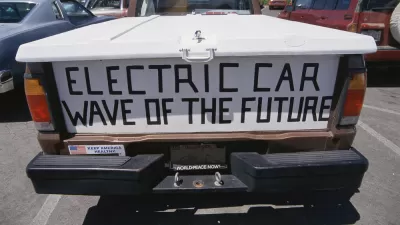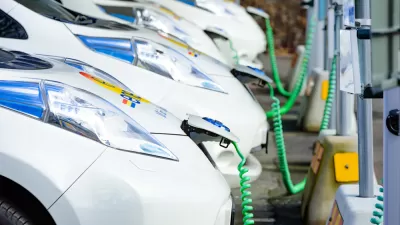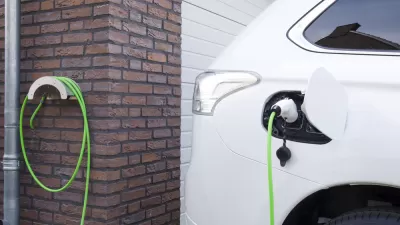Campaigners for the Sierra Club's electric vehicle initiative make the case that New York State Gov. Andrew Cuomo needs to offer a state rebate of $2,000 to $4,000 to make EVs more attractive to car buyers now that he's phasing out coal power.
Kathleen Benedetti-Fisher and Gina Coplon-Newfield of Sierra Club's Electric Vehicles Initiative.
New York has yet to join other northeastern states that provide crucial financial incentives for consumers: rebates. Massachusetts [$2,500], Connecticut [$3,000], Pennsylvania [$2,000], Delaware [$2,200] and Rhode Island [$2,500] offer a consumer rebate for purchase or lease of an EV.
These rebates are in addition to the federal income tax credit of up to $7,500 for for all-electric and plug-in hybrid vehicles.
Benedetti-Fisher and Coplon-Newfield acknowledge that New York "has subsidized 500 of New York’s 1,200 charging stations through its ChargeNY program and recently proposed funding for 900 more," but more needs to be done if the Empire State is to "lead the pack," presumable referring to its neighbors that offer $2,000 to $3,000 EV rebates.
Would EV personal rebates compete with public transit subsidies?
As it stands, Cuomo has announced an aggressive, "$100 billion Robert-Moses-like" list of capital projects, many of which benefit public transit. There's also MTA's $29 billion capital plan that needs funds. And transit projects not in those plans, such as New York City Mayor Bill de Blasio's $2.5 billion BQX streetcar, maybe quashed by Cuomo.
In light of all those competing demands on New York's budget that benefit public transit, does it make sense to offer generous subsidies, on top of federal ones, so individual car buyers can be an electric vehicle, be it a $26,000 Chevy Spark or a $70,000 Tesla, vehicles that won't even pay gas tax to maintain roads and bridges? Subsidizing EV infrastructure programs such as ChargeNY that benefit all EV drivers, not individual EV purchases, may be a more egalitarian approach.
A list of state incentives and special fees for electric and hybrid vehicles as of Dec. 3, 2015 is compiled here by the National Conference of State Legislators and here by Plug-in Cars.
FULL STORY: New York Drivers Need an Electric Car Consumer Rebate

Planetizen Federal Action Tracker
A weekly monitor of how Trump’s orders and actions are impacting planners and planning in America.

Map: Where Senate Republicans Want to Sell Your Public Lands
For public land advocates, the Senate Republicans’ proposal to sell millions of acres of public land in the West is “the biggest fight of their careers.”

Restaurant Patios Were a Pandemic Win — Why Were They so Hard to Keep?
Social distancing requirements and changes in travel patterns prompted cities to pilot new uses for street and sidewalk space. Then it got complicated.

Platform Pilsner: Vancouver Transit Agency Releases... a Beer?
TransLink will receive a portion of every sale of the four-pack.

Toronto Weighs Cheaper Transit, Parking Hikes for Major Events
Special event rates would take effect during large festivals, sports games and concerts to ‘discourage driving, manage congestion and free up space for transit.”

Berlin to Consider Car-Free Zone Larger Than Manhattan
The area bound by the 22-mile Ringbahn would still allow 12 uses of a private automobile per year per person, and several other exemptions.
Urban Design for Planners 1: Software Tools
This six-course series explores essential urban design concepts using open source software and equips planners with the tools they need to participate fully in the urban design process.
Planning for Universal Design
Learn the tools for implementing Universal Design in planning regulations.
Heyer Gruel & Associates PA
JM Goldson LLC
Custer County Colorado
City of Camden Redevelopment Agency
City of Astoria
Transportation Research & Education Center (TREC) at Portland State University
Camden Redevelopment Agency
City of Claremont
Municipality of Princeton (NJ)





























